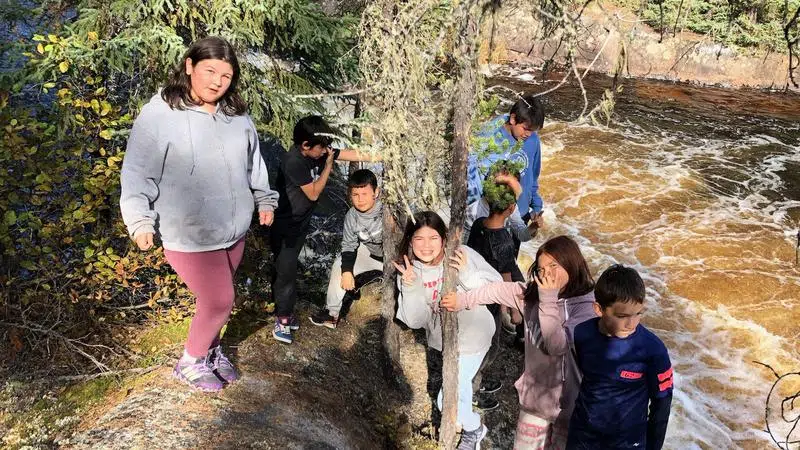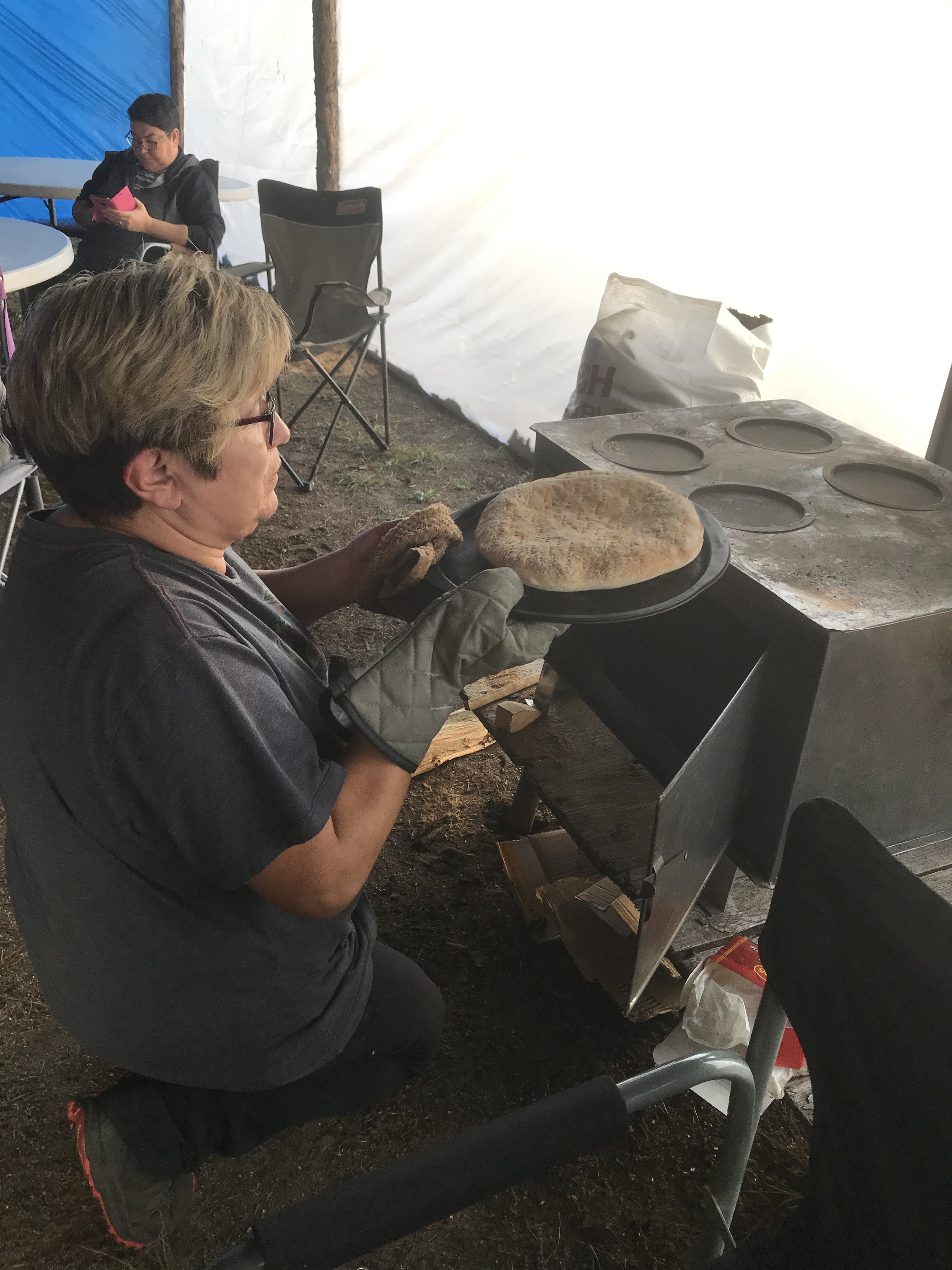
Canadian Geographic interested in Michif language in Pinehouse
Canadian Geographic has taken a special interest in the strong Michif language roots in Pinehouse Lake.
A representative from the Ottawa-based magazine attended a traditional hunting and culture camp north of the small community at Kilometer 67. The five-day camp ended Sunday and was also attended by Métis Nation – Saskatchewan (MN-S) President Glen McCallum. He said inviting Canadian Geographic to the locally-organized event was a way of promoting the Michif language, as well as northern Saskatchewan.
“They want to do some work with the Métis Nation on a Pinehouse documentary, the positives of what’s happened in the last 30 years from the time we were a dysfunctional community up to now we’re we are… succeeding,” he said.
In specific, Canadian Geographic is working on a project to increase the number of Michif speakers in the province. Representatives with the company had never witnessed a tradition hunting camp before and doing so was part of the visit. Speakers of the language were also interviewed and McCallum noted a camera crew will likely be attending the annual elders gathering this spring.



